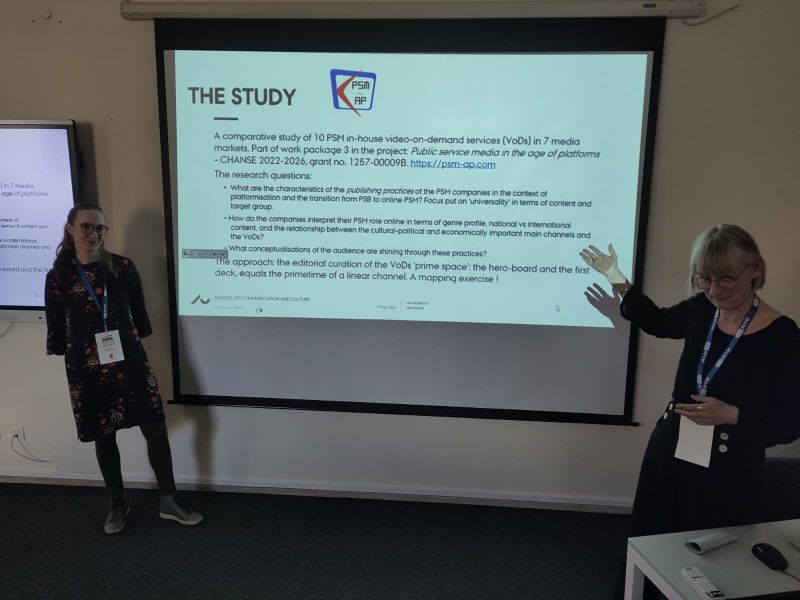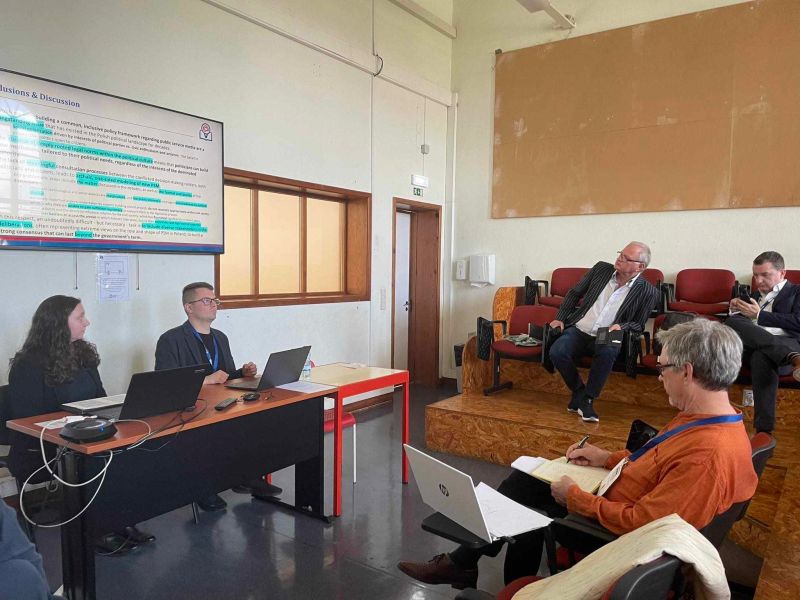For the RIPE conference on Public Service Media for Innovation and Sustainability, members from our PSM-AP team presented four papers on May 17th. During the conference, which took place in Lisbon from May 16 – 18, 2024, PSM-AP team members Michał Głowacki, Filip Świtkowski, Antonio Nucci, Hanne Bruun, and Julie Mejse Münter Lassen presented recent findings from their research.
The first talk by one of our team members was by Antonio Nucci, with a paper titled PSM VOD and Sustainability: How Rai represents ESG issues on its streaming platform. This paper focuses on the Italian branch of our project, specifically the Italian public service organisation RAI, which Antonio presented during the Dimensions of Sustainability workgroup.
In the workgroup on Audiences and Engagement, our team had two papers. The first was presented by Hanne Bruun and Julie Mejse Münter Lassen and is titled Prime space publishing: A comparative study of PSM companies’ editorial priorities on their VoD-services and main channels in the age of platformisation. The paper focuses on how public service organisations are adapting their core values as they increasingly transition their services to online PSM. Presenting findings from WP3 of our project, the talk presented editorial practices on the ‘super prime space’ of different PSM’s in-house video on demand services.

Shortly thereafter, Julie Mejse Münter Lassen will presented “Television is about change”: The digital transition of Danish DR in the pursuit of reaching and retaining all citizens. Focusing on the restructuring of the Danish public service media organisation DR, the paper argues that the influence of publishing editors has grown remarkably with the restructuring of DR.
Finally, during the Politics and Policy workgroup, team members Michał Głowacki and Filip Świtkowski, along with Dagmara Furman, presented a talk titled Deliberating public service media: Poland’s blend(s) of public and political interest(s). The talk focused on how the autumn 2023 political change in Poland has provided a transitional case study, with policymaking debates about reinventing Poland’s PSM mainly focused on political parties and societal ideologies, rather than how to adapt legacy broadcasting services and systems to current media changes, such as the metaverse and Generative AI.

Additionally, two members of our project, Catalina Iordache and Tim Raats, alongside Pieter Van der Elst, presented research aligned with our work. Looking at Flemish public service media, they presented a paper titled Platform-proof and user-first: The case study of VRT’s digital audio strategy. This presentation was included in the Audiences and Engagement workgroup.
More information about the conference can be found at https://ripepsm.org/.
